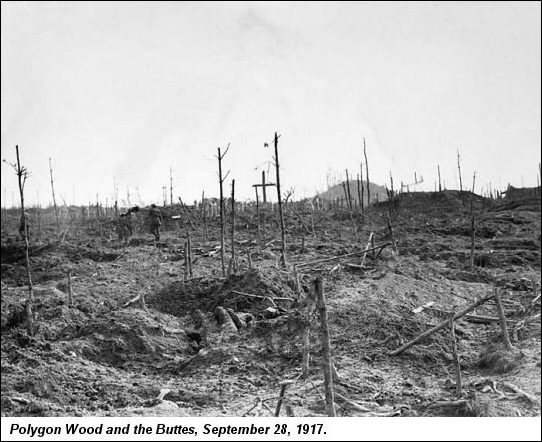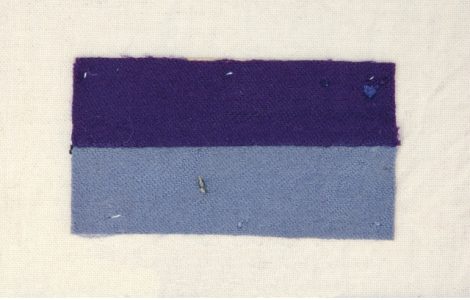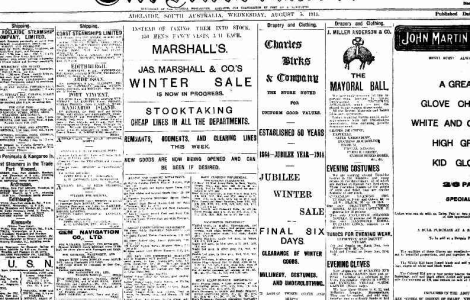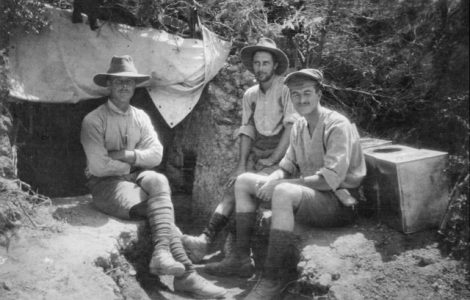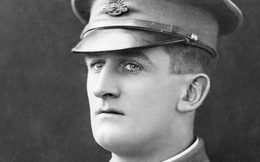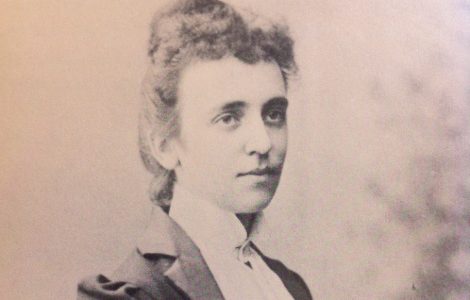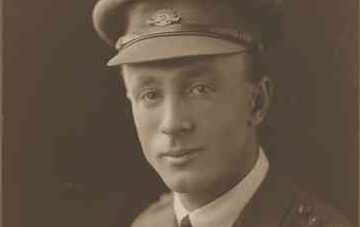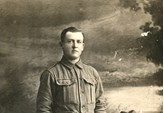September, 1917
After some months of relative calm, September 1917 was the month when the 1st and 2nd Australian Divisions (including 10th Battalion) was called upon to be part of a significant operation. A number of our other correspondents were also involved in this offensive.
FROM THE SOLDIERS
The Third battle of Ypres had commenced on 31 July. On 20 September, the training of recent months was put into practice at Menin Road. Although not directly involved, Leo Terrell’s diary reveals that the preparations for this ‘stunt’ were widely discussed: ‘Every preparation is being made for a stunt which is going to be either the king hit to Fritz or a terrible loss to us’. His month concluded with leave in London.
Regular followers of this blog will already know that Lou Avery is an entertaining and honest writer. His entries for September make particularly compelling reading, as he shares his experiences of 3rd Ypres. He describes the bombardment and its aftermath; the country, he noted was ‘so churned up it was… almost resembling boiling porridge.’
Although the offensive was successful in its objectives, the toll was high: Avery (who received news that he had been promoted to Company Corporal) notes ‘We saw horrible sights today, wounded pouring back all day long.’ The Australians had performed particularly well, and were, he said, ‘the talk of the whole British Army on account of their success’. There were also many thousands of German prisoners taken. Avery’s diary also notes some battlefield atrocities.
Six days later a follow-up attack was launched on Polygon Wood, following a counter-attack the previous day. The Australian 4th and 5th Divisions relieved the 1st and 2nd, meaning that James Churchill-Smith’s 50th Battalion was involved, although Churchill-Smith himself was disappointed to be in a support role rather than ‘firing into action’. His diary recalls: ‘Not too pleasant a feeling sitting inside a ‘pill’-box all day waiting for news’. However in a counter attack later in the day he was struck in the head, and seven pieces of shell were removed at the Casualty Clearing Station. His telegram home read: ‘Slightly wounded head, ‘operation’ successful. Doing splendidly. Love all’.
Ross Smith also received a head injury – he was hit in the face in the air over Beersheba. He made is safely back to base, before being evacuated to Cairo then on to Alexandria to convalesce. He returned to his squadron on 30 September.
BEHIND THE LINES IN GERMANY
In Germany, Adelaide woman Ethel Cooper was still hopeful that she would be granted a pass to leave the country. She quit her flat and moved in with her friend Frau Jaeger, an English woman married to a German.
AT HOME IN SOUTH AUSTRLIA
Wattle Day was remembered on 1 September, and the Gallipoli wattle grove (south park lands) was extended. There was little in the Advertiser about the latest actions in Belgium, although there was an article noting the gallant action of nurses at the clearing hospital, noting that five Australian nurses had been given Military Medals. In addition, casualty lists were released regularly, and there was news, too, of returning injured soldiers, including that sad news that one South Australian officer had thrown himself overboard on the voyage home. The newspaper does not tell us his name: we don’t know the extent of his physical or psychological injuries, but is not hard to imagine his troubled state of mind when contemplating a return home. There was also news about a new Association for Rejected Volunteers, and information for families about sending letters to their prisoners of war – ‘not more than one sheet, written on both sides’. Nationally, recruiting was at a low ebb: only 2466 were recruited.
Significant industrial unrest continued in eastern states, and it spread to Port Adelaide.
Anti-German sentiment remained strong, with a bill to change German-sounding place names under discussion in the House of Assembly. According to the Premier, these had ‘become obnoxious to the people of the State’. Whilst the Committee had recommended the change should be to Aboriginal names in many instances, the Premier preferred commemorating heroes of the war.
As spring dawned in South Australia, we can imagine what little hope there must have been on the horizon. Each victory in this war came at such a high cost, and the end was still nowhere in sight.


